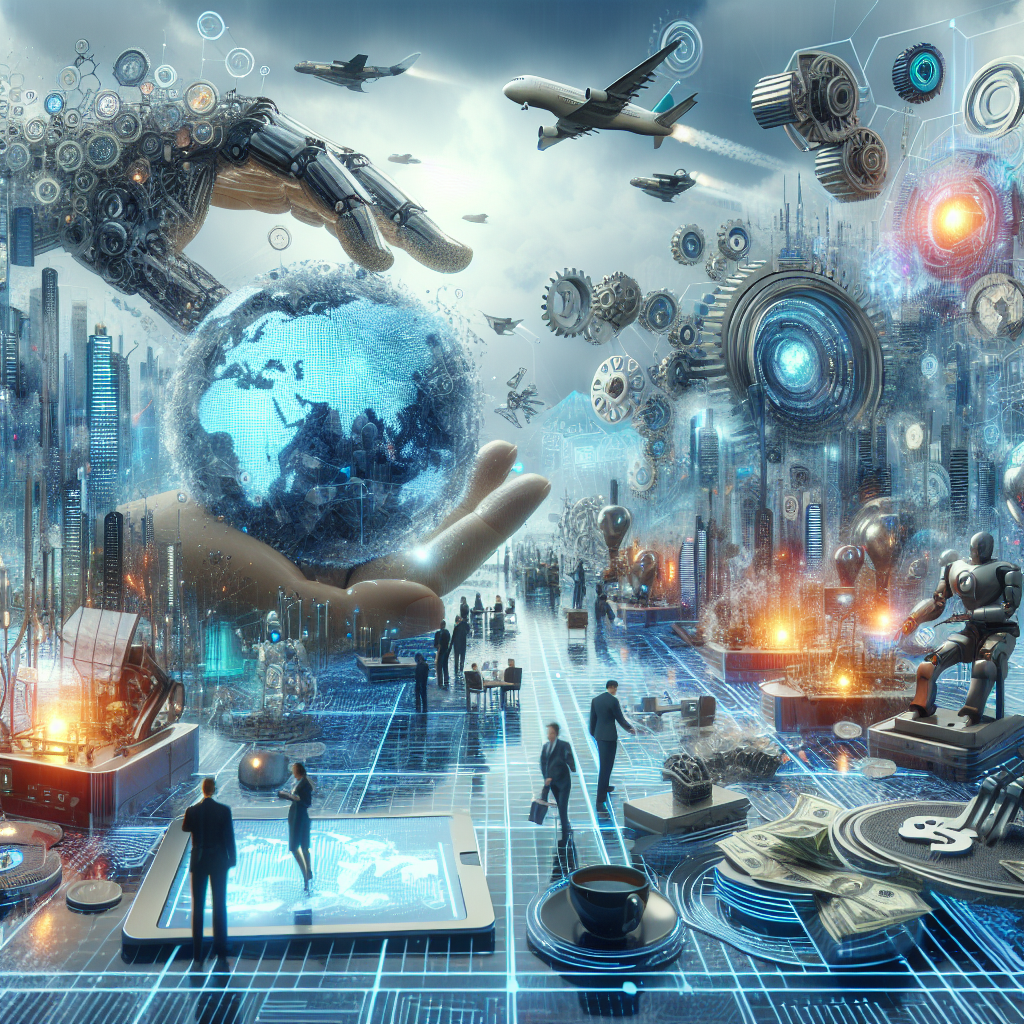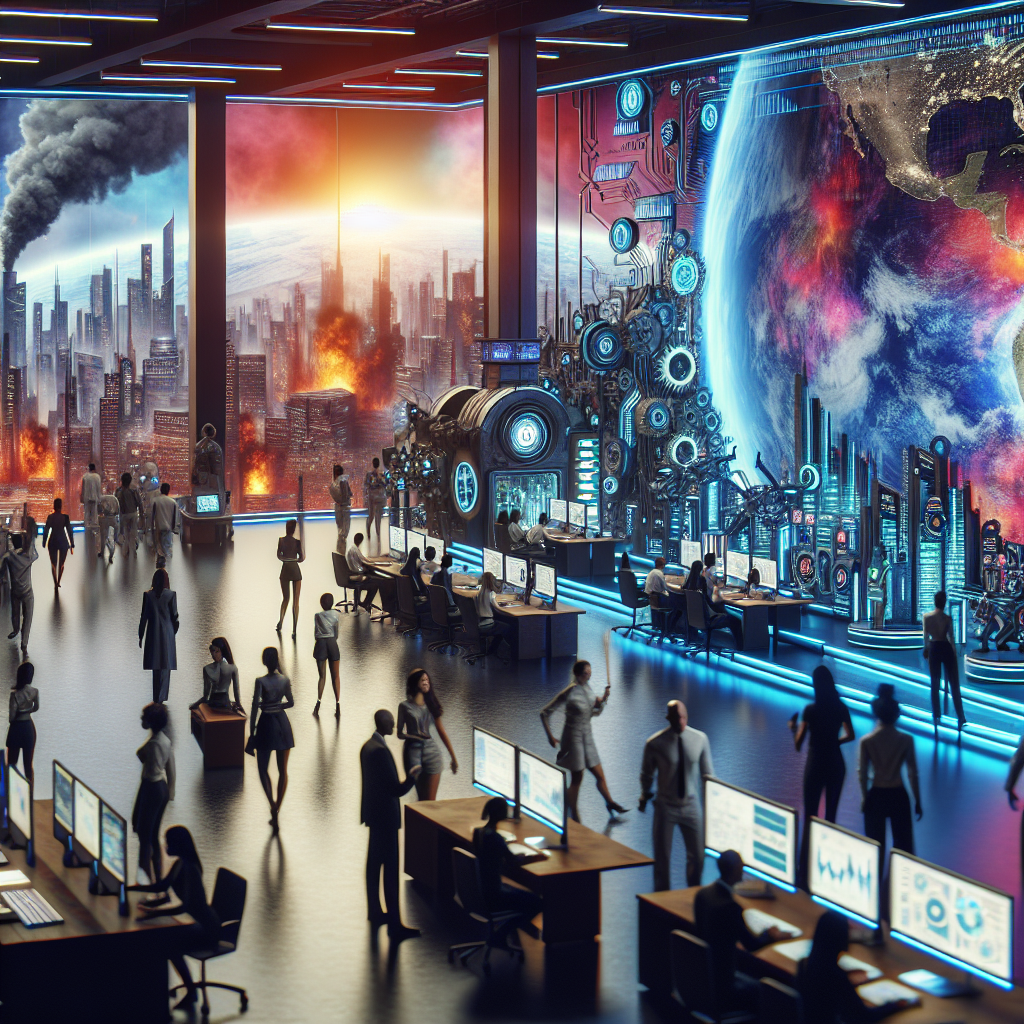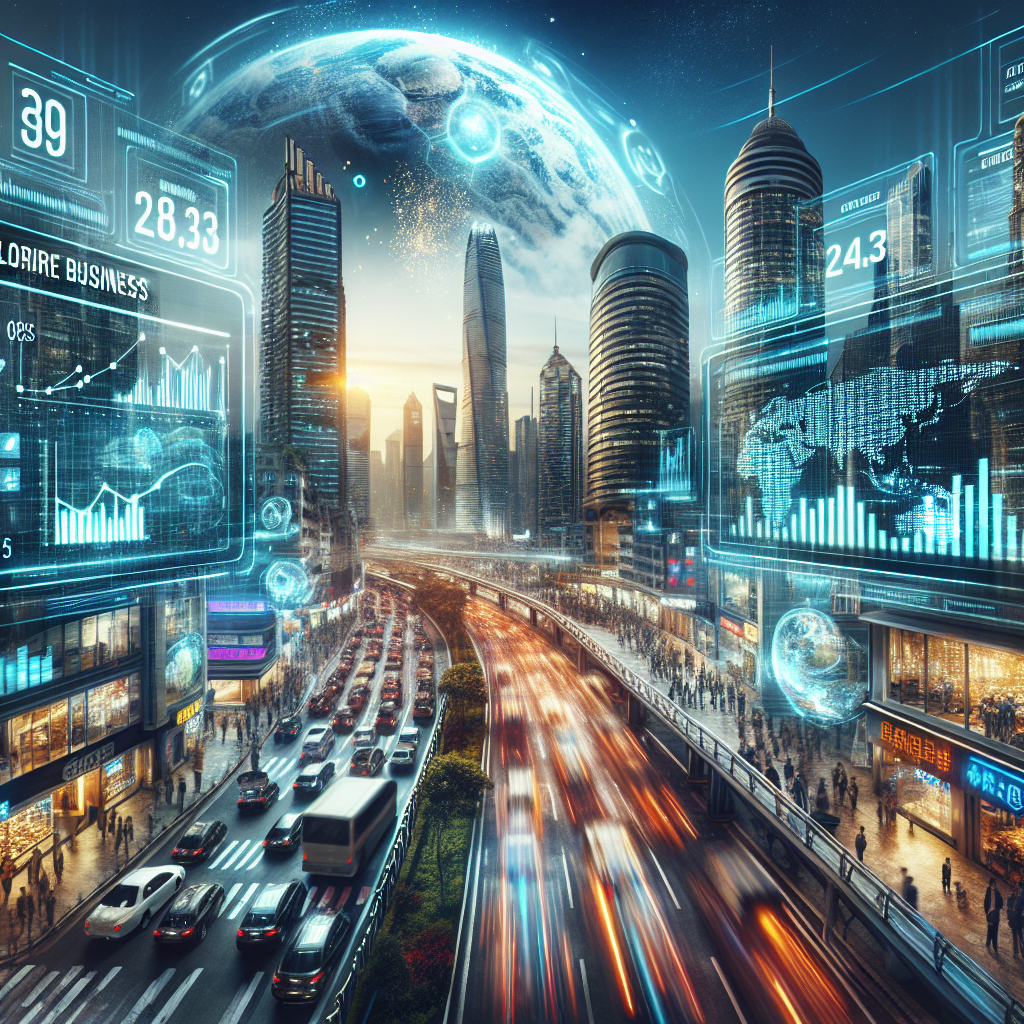Preparing Businesses for Global Disruptions with AI
I recently watched a clip from the movie Interstellar (2014) starring Matthew McConaughey. Although it’s a work of fiction, I couldn’t help but notice some unsettling parallels to current events, which gave me goosebumps.
The prospect of World War III is daunting, but considering how businesses might remain operational amid such global disruptions is worthwhile. A large-scale conflict could lead to disrupted supply chains, volatile markets, workforce shortages, cybersecurity threats, mental health crises, emergent illnesses, and widespread uncertainty.
In such a scenario, AI agents—autonomous systems powered by artificial intelligence—could be invaluable for businesses, enabling them to adapt, survive, and even thrive during turbulent times.

The Impact of a Global Conflict on Markets
If World War III were to occur, businesses might face:
- Supply Chain Disruptions: Global trade routes could be blocked, resources might become scarce, and manufacturing hubs could shut down.
- Workforce Challenges: Labor shortages could arise due to military enlistment, displacement, or restricted movement in war zones.
- Economic Instability: Currencies, stock markets, and commodity prices might experience extreme volatility.
- Cybersecurity Threats: Modern wars would likely involve cyberattacks targeting businesses, infrastructure, and governments.
- Consumer Behavior Shifts: People might reduce spending on non-essential goods and services due to uncertainty or economic strain. Conversely, there could be a surge in demand for essentials and survival tools, requiring businesses in these niches to be prepared for increased activity.
In such a volatile environment, business resilience becomes critical, and AI agents offer a powerful solution.
How AI Agents Can Keep Businesses Afloat
Managing Supply Chain Disruptions
AI agents can optimize supply chains even in chaotic environments by:
- Predicting Disruptions: Analyzing real-time geopolitical, weather, and logistics data to forecast problems and recommend alternatives.
- Inventory Optimization: Ensuring just-in-time inventory management to avoid overstocking or critical shortages.
- Diversifying Suppliers: Identifying and recommending alternative suppliers to maintain operational continuity.
Workforce Automation
With potential labor shortages during wartime, businesses can rely on AI agents to fill the gaps:
- AI-Powered Customer Service: Chatbots and virtual assistants handle inquiries 24/7, unaffected by the surrounding chaos.
- Automation of Repetitive Tasks: AI can take over payroll, invoicing, and data entry, freeing the workforce for higher-value tasks.
- Employee Productivity Tools: AI tools can enhance efficiency even in remote or constrained conditions.

Navigating Economic Volatility
AI helps businesses remain agile in unpredictable markets by:
- Real-Time Market Analysis: Monitoring trends, currency fluctuations, and stock prices to guide decision-making.
- Dynamic Pricing Models: Adjusting prices based on changing costs, demand, and competitor actions.
- Risk Management: Identifying financial risks and recommending mitigation strategies, such as diversifying revenue streams.
Strengthening Cybersecurity
Cyberwarfare is a major component of modern conflict, and AI can protect businesses by:
- Threat Detection: Monitoring networks for anomalies and flagging potential cyberattacks.
- Automated Incident Response: Isolating compromised systems, patching vulnerabilities, and restoring operations.
- Predictive Analytics: Anticipating new types of cyberattacks based on global threat patterns.
Adapting to Consumer Behavior
Businesses must pivot as consumer priorities shift during wartime:
- AI-Driven Insights: Analyzing purchasing behavior to adapt product offerings.
- Personalized Marketing: Delivering targeted campaigns that resonate with customers’ needs and emotions.
- Scenario Planning: Simulating wartime scenarios to prepare for changing consumer demands.

AI as a Catalyst for Innovation During Wartime
While war is a crisis, history shows it can spur innovation. Businesses leveraging AI agents during such periods could:
- Pivot to New Markets: Transition production to wartime essentials like medical supplies or renewable energy solutions.
- Drive Digital Transformation: Accelerate the adoption of AI and automation for more efficient operations.
- Foster Collaboration: Use AI-powered platforms for remote teamwork to ensure continuity despite disruptions.
Preparing for the Worst with AI
Although we hope World War III never happens, businesses can proactively build resilience:
- Invest in AI Today: Integrate AI into supply chains, customer service, and cybersecurity now.
- Develop Contingency Plans: Use AI tools to simulate global crises and create strategies to mitigate risks.
- Collaborate with AI Experts: Partner with AI companies to adopt cutting-edge solutions and learn to use them effectively.
The Future of Business in a Conflict-Driven World
AI agents are here to stay, providing tools to automate processes, enhance decision-making, and safeguard operations. Whether optimizing supply chains, automating workflows, or strengthening cybersecurity, AI empowers businesses to survive and find opportunities for growth in challenging times.
In a world where uncertainty is constant, businesses embracing AI today will be better equipped for tomorrow. While we hope such conflicts never arise, being prepared is essential.
